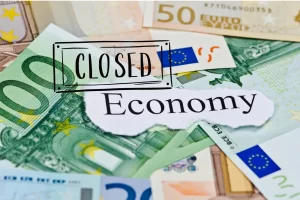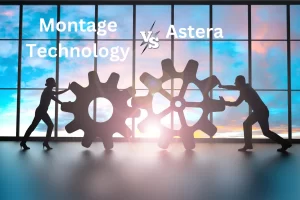In the saturated world of traditional advertising, securing sponsorship for major events can be prohibitively expensive. Many companies struggle to gain visibility amidst fierce competition. This is where ambush marketing comes into play as a cost-effective and strategic alternative. This blog post will delve into the nuances of ambush marketing, its types, benefits, challenges, and some real-world examples of its application.
What is Ambush Marketing?
Ambush marketing is a strategy where a company exploits the exposure of a major event without paying sponsorship fees. The goal is to make consumers believe that the company is associated with the event, thus gaining significant brand visibility.
Key Points:
- Ambush Marketing: Leveraging major events for brand exposure without official sponsorship.
- Types: Direct and indirect ambush marketing strategies.
Types of Ambush Marketing
Direct Ambush Marketing
Direct ambush marketing involves clear and overt actions that create the impression of sponsorship. It includes:
- Predatory Ambushing: This involves intentional misleading claims of sponsorship to divert attention from the actual sponsor.
- Coattail Ambushing: This method associates a brand with an event indirectly by aligning with related activities or audiences.
- Trademark Infringement: Unauthorized use of event logos or trademarks to create false associations.
- Self-Ambushing: When an official sponsor exceeds the agreed promotional limits, thus overshadowing other sponsors.
Indirect Ambush Marketing
Indirect ambush marketing is more subtle and includes:
- Ambushing by Association: Using imagery or terminology that creates an illusion of association without direct claims.
- Values Ambush: Aligning marketing campaigns with the event’s themes or values without explicit references.
- Ambushing by Distraction: Creating a strong promotional presence near the event without claiming any direct connection.
Benefits of Ambush Marketing
Ambush marketing offers several advantages:
- Cost-Effectiveness: It bypasses the high costs of official sponsorships, providing similar levels of exposure at a fraction of the price.
- Flexibility: Brands can quickly adapt their campaigns to emerging trends and opportunities without the constraints of sponsorship agreements.
- Creativity: Encourages innovative strategies that capture audience attention through unconventional methods.
Challenges of Ambush Marketing
Despite its benefits, ambush marketing poses certain challenges:
- Legal Risks: Unauthorized use of trademarks or logos can lead to legal disputes and financial penalties.
- Ethical Considerations: It raises questions about fair competition and can be perceived as deceptive.
- Reputational Risks: Misleading consumers or exploiting events can result in negative publicity and damage to brand credibility.
Real-World Examples of Ambush Marketing
Nike vs. Reebok
During the 1996 Olympic Games in Atlanta, Nike, without being an official sponsor, captured attention by having Michael Johnson race in gold Nike shoes, overshadowing the official sponsor, Reebok.
BMW vs. Audi
In a notorious billboard battle, BMW and Audi engaged in a public display of ambush marketing. BMW hosted a rally with the slogan “A BMW rally with two nearby service centers. What’s next, paramedics at a chess tournament?” Audi responded with a billboard mocking the slogan, and the rivalry escalated with a series of clever advertisements, each trying to outdo the other.
Paddy Power
During the 2012 London Olympics, Paddy Power declared itself the “Official sponsor of the largest athletics event in London this year,” referring to a local egg-and-spoon race in London, France, rather than the Olympic Games, cleverly skirting IOC regulations.
Implementing an Effective Ambush Marketing Strategy
To successfully execute an ambush marketing campaign, brands should follow these steps:
Research and Analysis
Conduct thorough research to understand the target audience, competitor landscape, and event dynamics. This helps identify strategic opportunities and tailor tactics for maximum impact.
Creativity and Innovation
Develop unique and engaging campaigns that stand out. This could involve guerilla marketing tactics, viral campaigns, or real-time experiential marketing.
Execution and Timing
Align campaign launches with high-profile events or competitor actions to maximize visibility and relevance.
Legal Considerations and Compliance
Ensure compliance with intellectual property laws and sponsorship agreements to avoid legal challenges.
Insights from Recent Ambush Marketing Campaigns
Table: Key Insights from Ambush Marketing Campaigns
| Insight | Example | Impact |
|---|---|---|
| Creative Execution | Nike’s gold shoes at 1996 Olympics | Boosted brand visibility without sponsorship |
| Legal and Ethical Considerations | Paddy Power at London 2012 | Highlighted the fine line between legal and illegal tactics |
| Adaptability to Trends and Events | Lululemon’s “Cool Sporting Event” | Successfully capitalized on Olympic hype |
| Importance of Timing and Context | Audi vs. BMW Billboard Battle | Showcased the power of timely and contextually relevant ads |
Conclusion
Ambush marketing is a powerful tool for brands looking to gain exposure and disrupt competitors without the hefty costs of official sponsorships. By leveraging creativity, strategic timing, and thorough research, companies can effectively capture audience attention and enhance their brand presence.
For more insights on effective marketing strategies, check out Mailchimp’s marketing resources and WordStream’s blog on ambush marketing.







